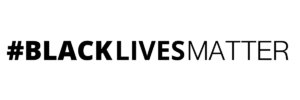
Temple Beth Israel unequivocally affirms that Black lives matter and supports the Black Lives Matter movement. We stand for justice, against racism, and in opposition to violence inflicted on Black communities.
We take this stand even as we know that we have much work to do within our own congregation to learn more about systemic racism in America, to confront it within ourselves, and to take meaningful action.
As Jews, we understand and must share in the responsibility to dismantle centuries-old systems of oppression. This is not a political question, but a Jewish and a moral imperative. We are anchored in the words of Torah and in Jewish values:
- “Thou shalt not murder” sits at the center of the Decalogue, the ten commandments.
- Pikuach nefesh, “to save a life,” is one of the most fundamental principles in Jewish law. It is the one imperative that supersedes maintaining the law of the Sabbath.
- Tikkun olam, “repairing the world,” has its roots in the Mishna, where the term “mipnei tikkun ha-olam” refers to social policy legislation that provides extra protection for those potentially at a disadvantage. At an individual level, we are God’s partners in repairing what is broken in our world.
- Gemilut hasadim, “acts of lovingkindness,” is a principle that extends to many spheres including comforting mourners, extending hospitality and visiting the sick. It also encompasses engagement in communal efforts to meet the needs of people facing disadvantages.
As Jews, we also understand that silence is complicity. That silence is danger. Chris Harrison, a writer at the Union for Reform Judaism and a Black Jew, reminds us of this in his article Black Jews are Tired: “My anger is not just reserved for avowed racists but for the “good” people who witness their racism and say nothing. I can’t help but recall that the original title of Holocaust survivor Elie Weisel’s memoir Night was Un Di Velt Hot Geshvign, Yiddish for “And the World Has Remained Silent.”
Among the lives threatened daily, because they are Black, are Jewish lives. This in no way makes it more important that we take this stand; that imperative transcends our synagogue walls. But we must remember that outreach is not enough; inreach to Black Jews is critical. Enzi Tanner, a Black Jew in Minneapolis, says it simply and poignantly in an article from The Times of Israel: “…we need our community.”
In the same article, Anthony Mordechai Tzvi Russel, a Black Jew and a musician, sums up all that our history, our values, and our current crisis demand: “Solidarity with Black people doesn’t require a radical act of historical imagination. You are here. We are here. You know what to do. Do it. Now.”
Temple Beth Israel is one, small Jewish congregation in Waltham, Massachusetts. This in no way limits the depth of our responsibility as we face the immensity of systemic racism and violence against Black lives. We start by affirming our intention to stand up and speak out, that we stand in solidarity with Black Lives Matter, that we continue to learn so we can reach inward to Black Jews who need their Jewish community now more than ever, and that we reach outward with intentional, informed actions as allies in this movement.
